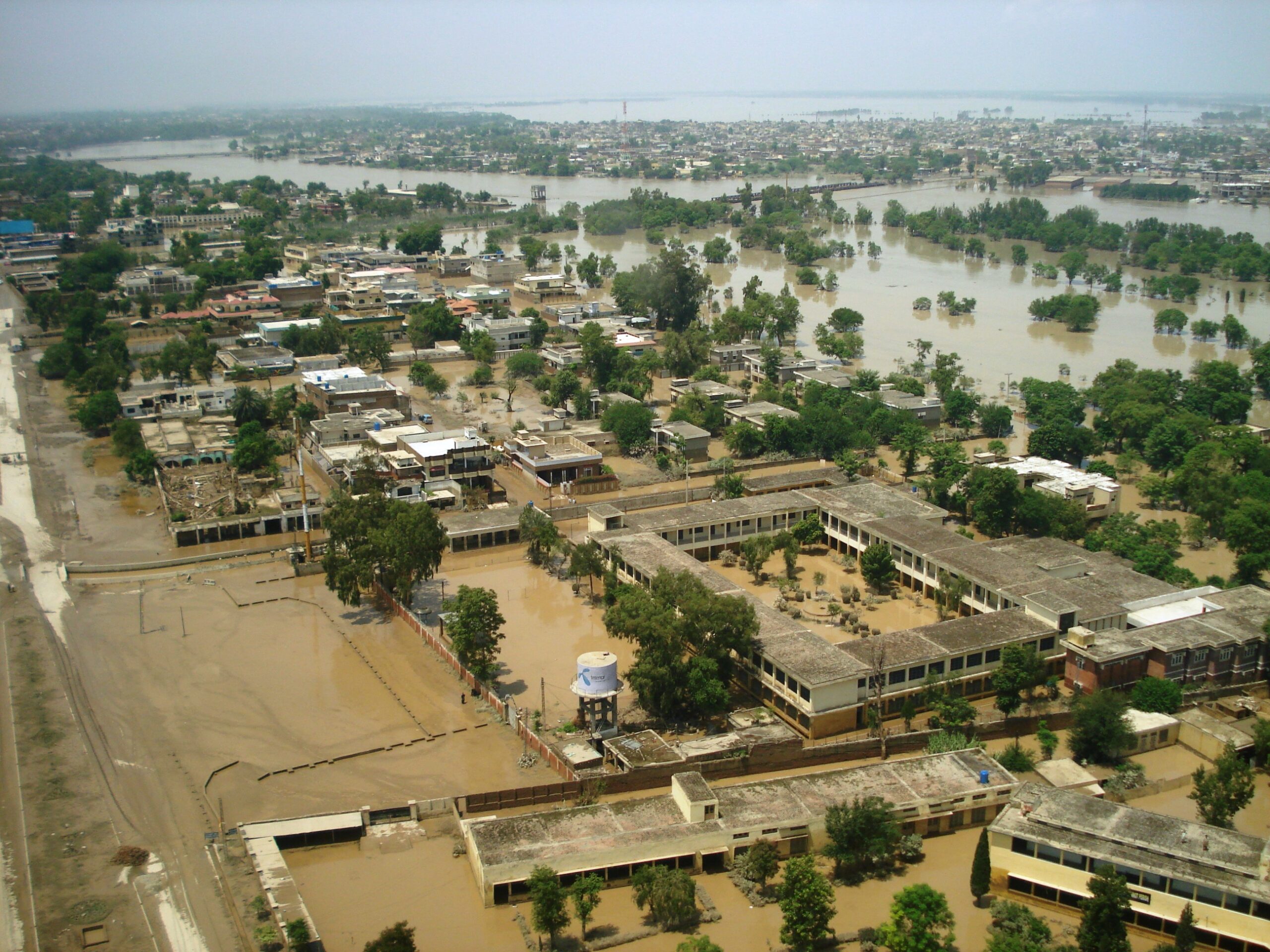Who Should Pay for Climate Change: The Polluter Pays Principle

The most recent United Nations Climate Change Conference, COP27, was held in Egypt this past November. This meeting was an opportunity for world leaders to discuss shared issues around climate change, with topics of debate ranging from stopping the burning of fossil fuels and getting rid of inefficient environmental subsidies to fresh debates such as the notion of “loss and damage” as a potential strategy for global environmental regulation. With this exchange, a new consensus arose wherein a reconfiguration of the global financial system was deemed essential in addressing climate change. This involves the development and enactment of the polluter pays principle (PPP), which is defined by the Organization for Economic Cooperation and Development as “the principle according to which the polluter should bear the cost of measures to reduce pollution according to the extent of either the damage done to society or the exceeding of an acceptable level of pollution.”
At COP27, numerous leaders from poorer and developing nations demanded that wealthy governments, especially those involved in the lucrative yet environmentally-crippling oil industry, pay for the environmental-related damages inflicted upon developing countries. The leaders of small island states facing unpredictable storms, flooding and rising sea levels, including Antigua and Vanuatu, vocalized this stance as part of the Alliance of Small Island States (AOSIS). Many developing African states urged funding for adaptation and mitigation technology. Climate change has been characterized as a tragedy of the commons, with emitters reaping the benefits of fossil fuel consumption yet shouldering little of the costs, making it difficult for accountability. Adopting the polluter pays principle with clear parameters provides an opportunity to balance the consequences of climate change and pressure rich countries to take responsibility.

Coastline of Vanuatu, one of the countries most vulnerable to sea level rise due to climate change. “Emae and Makura” by David Stanley is licensed under CC BY 2.0.
Negotiations leading to the PPP
The polluter pays principle was first adopted under the 1972 and 1974 OECD recommendations, stating that polluter states should bear the financial burden of pollution prevention and control measures. This promoted a legally binding responsibility on polluting countries to protect the environment involving measures to reduce emissions at the source and promote pollution treatment strategies. Both the 1987 Brundtland Commission Report “Our Common Future” and the OECD “Earth Summit” solidified emerging concerns on sustainability and urgency to integrate PPP globally. The culmination of multiple worldwide events, such as the oil crisis, the Iran-Iraq war, the economic recession and news of the ozone layer depletion, led to a newfound necessity of incorporating an environmental facet to development policy, challenging conventional ideas of purely economic growth.
Though rejected by skittish leaders of emitting countries until (date), formal negotiation of financial responsibility first occurred in 1991 when the island country of Vanuatu suggested an insurance scheme to help pay for the consequences of rising sea levels. The 2013 meeting of COP19 labelled this notion as “loss and damages,” referring to both the social and economic costs of climate consequences, with the 2015 Paris Agreement formally recognizing the concept. However, the funds were not announced until COP26 in 2021, after devastating floods in Pakistan caused 40 billion USD in damages and led multiple European governments to pledge funds totalling 262 million USD. Muhammad Tariq Irfan, Pakistan’s Director General of the Ministry of Climate Change, expressed frustration as the country is responsible for less than one percent of global emissions yet acutely faces the consequences.

Devastating floods in Punjab province of Pakistan in August 2010. “Aerial view of flooding in Pakistan” by UK Department for International Development is licensed under CC BY-NC-ND 2.0.
Negotiations at COP27 saw the formation of numerous blocs lobbying for parallel environmental demands. Brazil, South Africa, India and China form a “basic countries” bloc characterized by fast-developing and highly polluting economies and large populations. This bloc has asked wealthier countries for increased climate financing and equity through the United Nations Framework Convention on Climate Change’s (UNFCCC) concept of “common but differentiated responsibilities” so that wealthier countries with the most emissions take responsibility for addressing climate change. Another bloc formed is the Climate Vulnerable Forum, representing 58 countries at significant risk from climate impacts. This group lobbied for creating a fund financed by rich polluting countries dedicated to bearing the costs of “loss and damage.” Additionally, the Least Developed Country Group also came together to push loss and damage strategies requesting that wealthy nations provide double the amount of adaptation funding while improving access to it and emphasizing the necessity of reshaping environmental financing.
Western states dominating discourse over The Global South
Richer, western states have historically dominated climate change discourse and held decision-making power over issues about the Global South. However, their stances are often hypocritical given that they support policies encouraging emissions slashing while contributing over a century of polluting industrialization to the most greenhouse gasses. For example, many governments have expressed concern and anger over the multibillion-dollar oil industry profits since Russia’s invasion of Ukraine in February 2021, stressing the linkages between disrupted markets, consumer inflation and climate change. As such, it is clear that these causes and effects of pollution are understood but only considered depending on a state’s agenda. Moreover, blanket policy decisions such as immediate calls to shift away from fossil fuels disregard the needs of the Global South. Expanding economies in Africa, such as Senegal, asserted their resistance to these as fossil fuels are necessary to increase electric capacity and maintain natural gas reserves as a transition fuel.
Implementation: concerns and backing
The necessity of developing sustainable and tangible climate change policy is undeniable, but implementation is more straightforward said than done. Accountability is a significant concern for strategies such as PPP, mainly as historic negotiations have led to failure in delivering on promises because of the challenge in convincing leaders of rich industrialized countries to pay for the decisions and errors of their predecessors. There is also difficulty in determining who should pay or benefit from these transactions, meaning that a universally accepted framework and screening process is critical. This approach will enable the estimation of a country’s historical emissions and, consequently, the quantification of the warming and damage they have caused. This framework might also help categorize countries, given the confusion caused by seemingly similar terminology such as “vulnerable” versus “developing” countries. Despite these implementation challenges, PPP is supported and validated by attribution science. This new technology utilizes computer modelling to analyze how climate change exacerbates pre-existing “natural” disaster patterns, directly linking extreme weather events to human influence.
The COVID-19 pandemic, the Russia-Ukraine conflict and climate change caused tensions that are felt universally across the globe. The association of economics and the environment emphasize the distributive aspect of resource management and its relation to development. Important outcomes of COP27 include launching a global plan to aid vulnerable communities with sustainable farming and flood protection, as well as reviving negotiations to allocate a larger role to the World Trade Organization in mitigating climate change. The polluter pays principle might be a way to achieve climate justice and protect future generations, as long as clear and universally understood parameters are agreed upon and held up.
Feature photo: “The main gate of the Sharm El-Sheikh Climate Change Conference (COP 27)” by Matthew TenBruggencate is licensed under Unsplash.
Edited by Justine Peries
